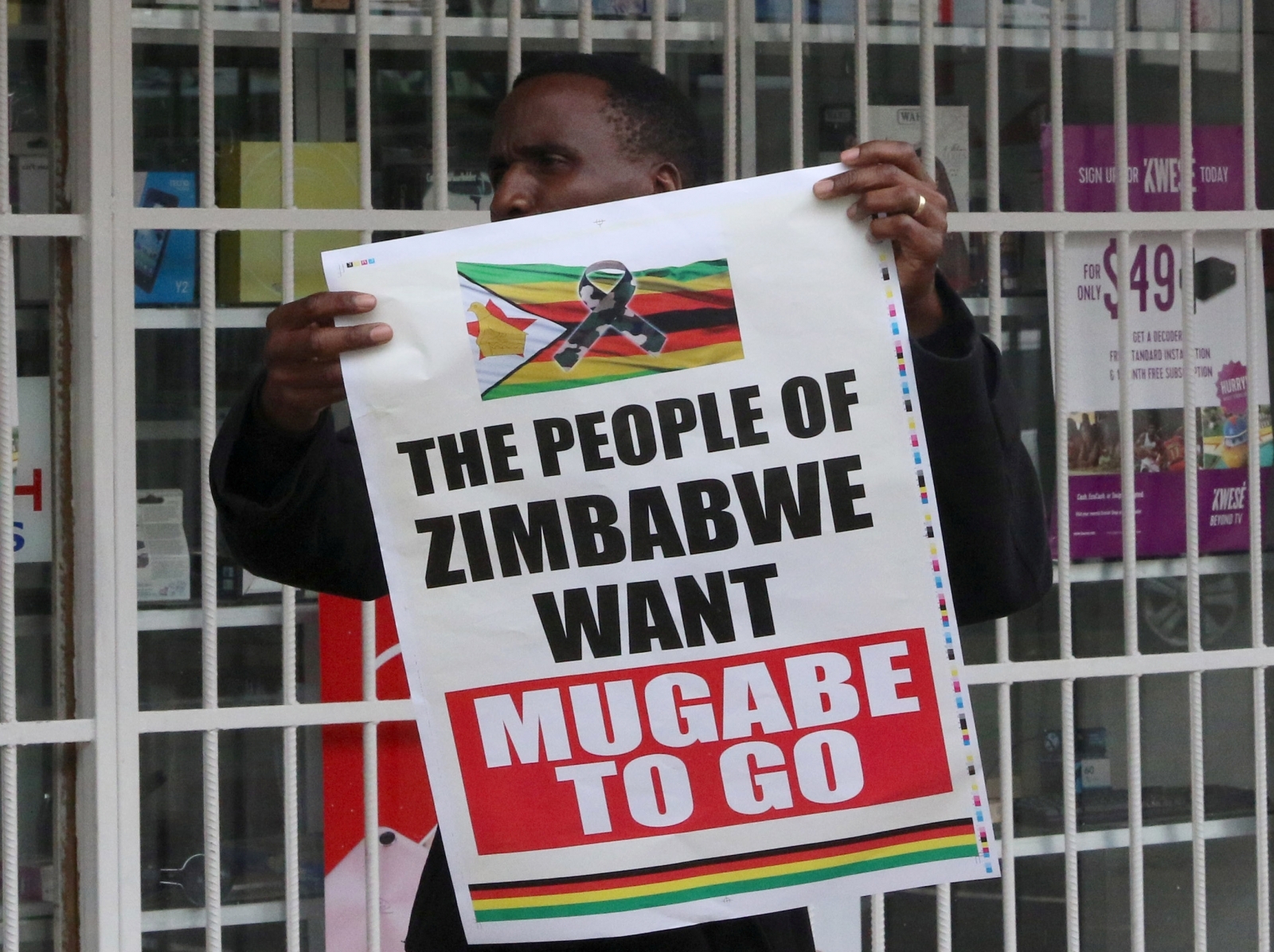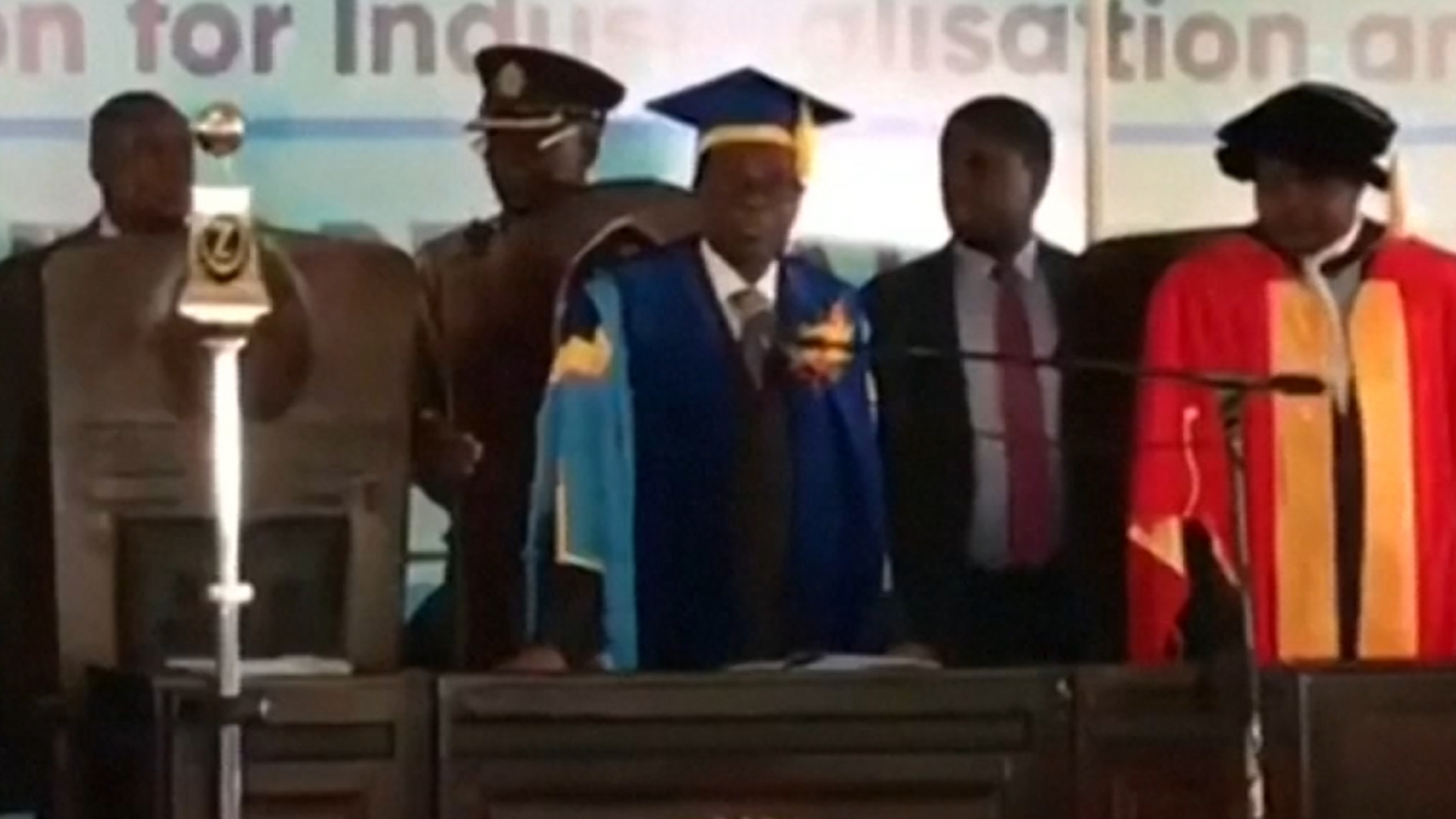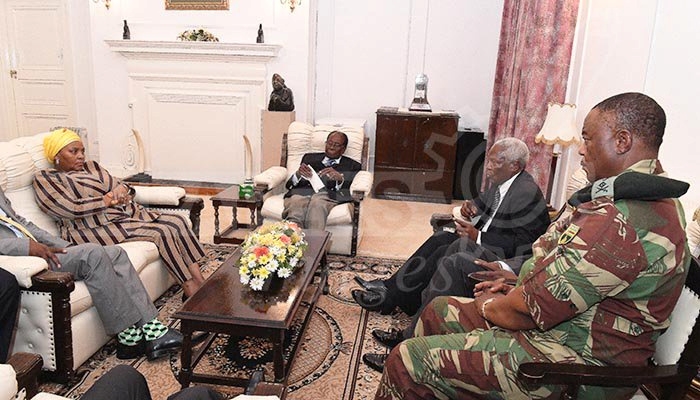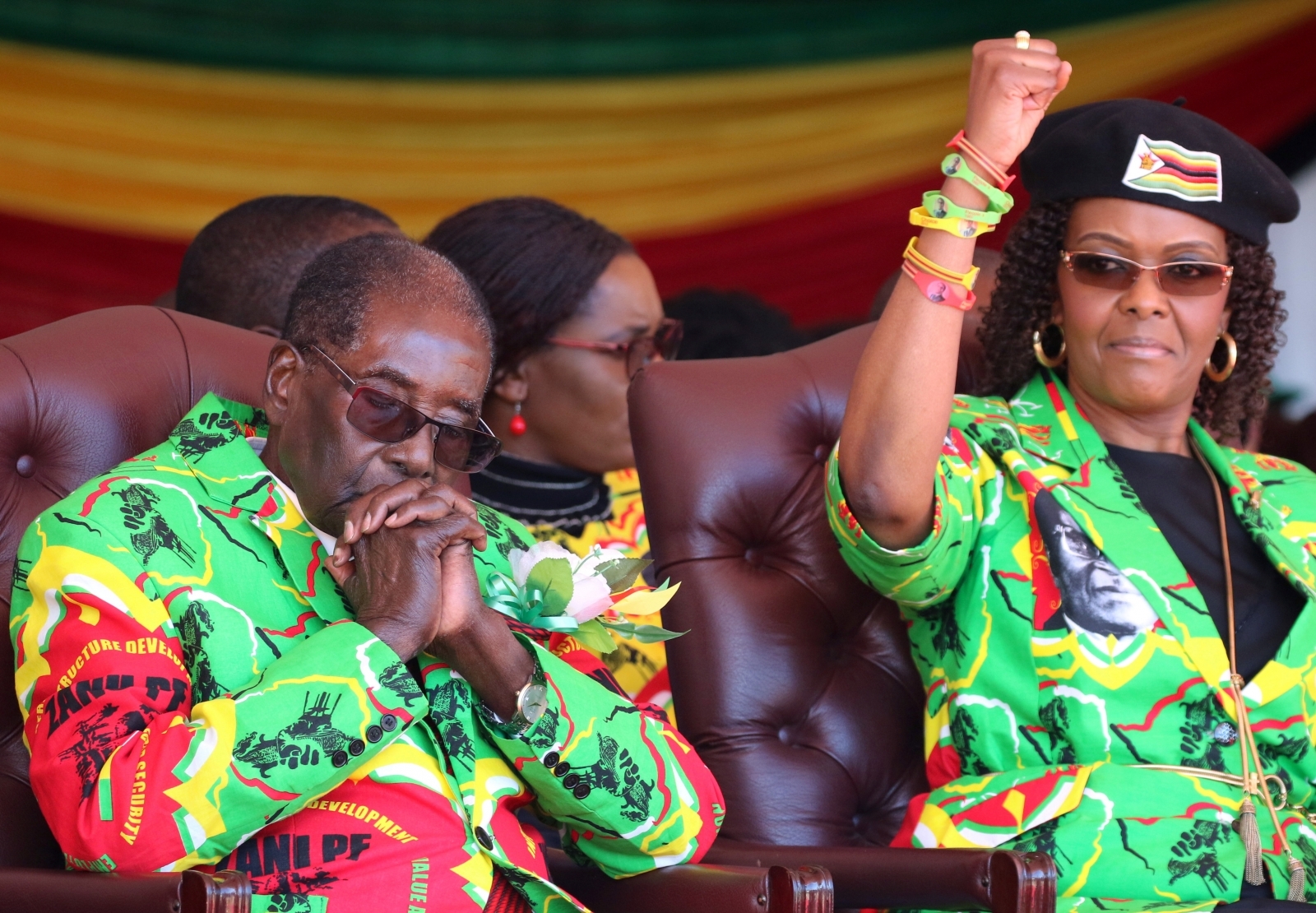Zimbabweans watched their families tortured and murdered – they have had enough of Mugabe
Zimbabweans have been called cowards for not standing up to Mugabe, but that does not reflect brutal reality.
The fall of Robert Mugabe has surprised everyone. It wasn't the suddenness of the army coup, but the smooth efficiency of it.
An even bigger surprise was the abject collapse of his breast-beating followers who have terrorised the public for years.
The ruling party's Zanu PF Youth leader, Kudzai Chipanga, was the only supporter who stood up for Mugabe, condemning the military intervention.
Within hours the military put him on state television, somewhat roughed up, abjectly saying he had been mistaken and the sun didn't go around the moon.
Few others are likely to make the same mistake. The tide has turned. After decades of empty Marxist rhetoric combined with nepotism and rampant corruption, together with brutal suppression, the people have had enough.
They have supported Mugabe because they had to. Sure, they were offered a choice: Long or short sleeves – were you to lose your arm above the elbow or below?
If you lived in rural areas, the chiefs – bought by Mugabe – would make sure you voted for his Zanu PF. If you didn't, you would face retribution – if not violence, denial of food aid or farm inputs, even if these were paid for by foreign donors.
One of the untold scandals that will now be scrutinised is how non-government organisations have connived in all this.
All these plump, linen-clad expatriate do-gooders in their 4X4's fraternising with the equally useless hoards of also-ran diplomats energetically making their way from national day receptions to diplomatic cocktail parties welcoming a new brother from Rome or Warsaw.
The number of diplomats from EU countries would fill a hall – even though the EU itself has an embassy in Harare. But it is a favourite posting. The weather is good, the country beautiful and the wildlife spectacular. And the people are friendly and graceful (excluding the politicians and the corrupted Zanu PF youth).
Zimbabweans have been called cowards for not standing up to Mugabe. This would be unfair. Many people have paid the price of opposition.
But everyone lived under the cloud of Gukurahundi, the genocide of the minority Ndebele during the early years of Mugabe's noxious regime. We meet people today who, as children, were made to watch as their families were burnt to death in their huts.






And the urban people also suffered this brutal treatment. They remember the 2005 Murambatsvina, a government campaign to clear slums where homes of perceived opposition supporters in urban areas were bulldozed to rig the electoral system – which long ago ceased to reflect reality.
The real cowards have been in Zanu PF itself – people who have connived with the party's egregious excesses.
But reality is dawning at last. The army wants to be paid. The country is bankrupt, the economy totally dysfunctional and an army marches on its stomach.
Money must come from somewhere. So it is off to the World Bank and the International Monetary Fund and the West in general for a $30bn (£22bn) bailout.
Zanu PF's atavistic appeal backed with loads of money has reaped rewards from the supine African Union, the Southern African Development Community (SADC) and even illustrious organisations like London's Chatham House think-tank and Oxford University.
But this time donors will insist that clapped-out economic and political policies which have destroyed the economy are dumped. Ironically, the maligned white farmers will be welcomed back in the hope of rebuilding the country's status as 'the jewel of Africa'. They will be welcomed by a people who are prepared to forgive anything – even Mugabe.
Dennis Benton is the press officer of the Zimbabwe Vigil, which has been campaigning for free and fair elections in Zimbabwe every Saturday outside the Zimbabwe Embassy in London for the past 15 years. Dennis worked as a journalist in Zimbabwe before joining the BBC World Service.








